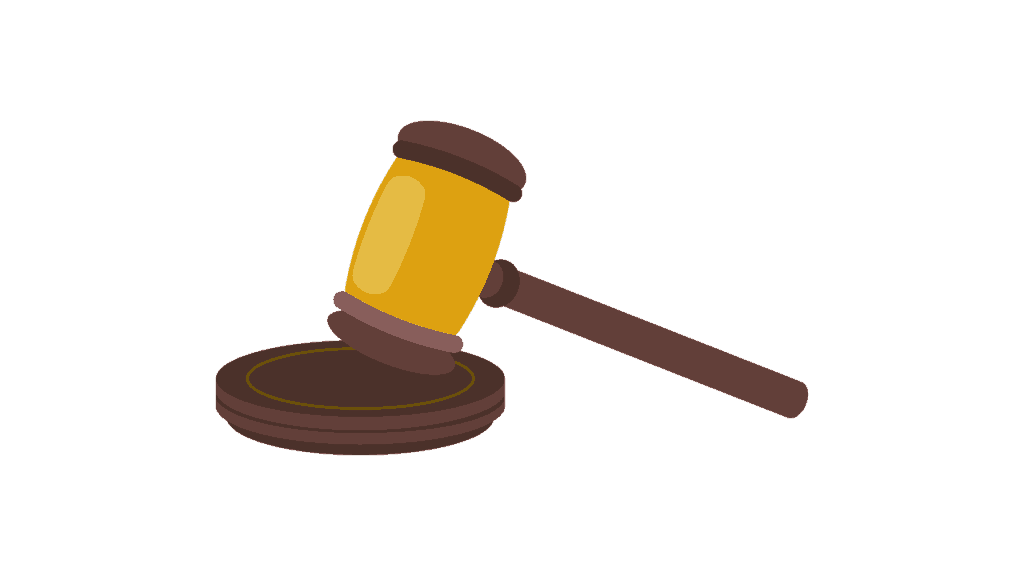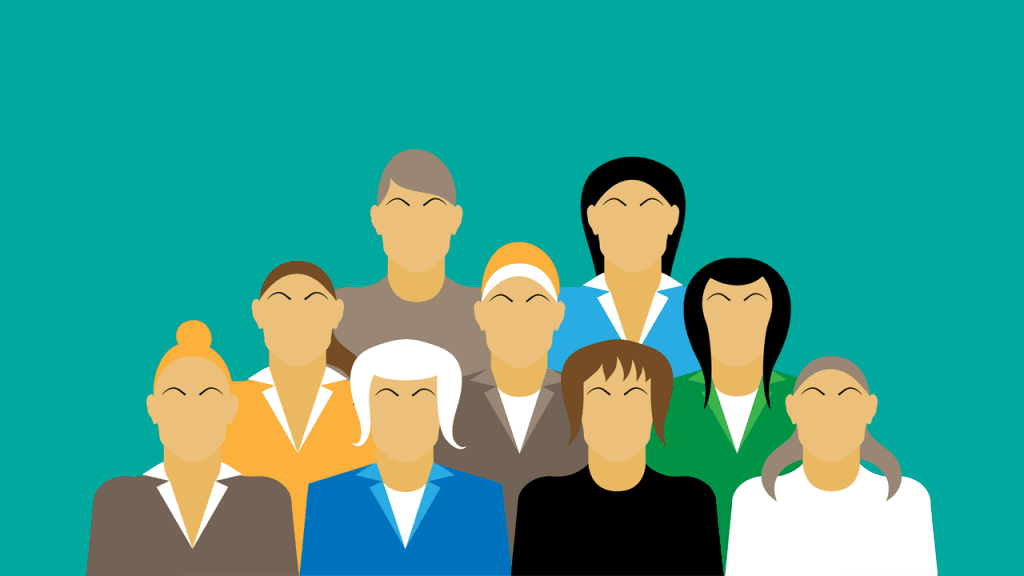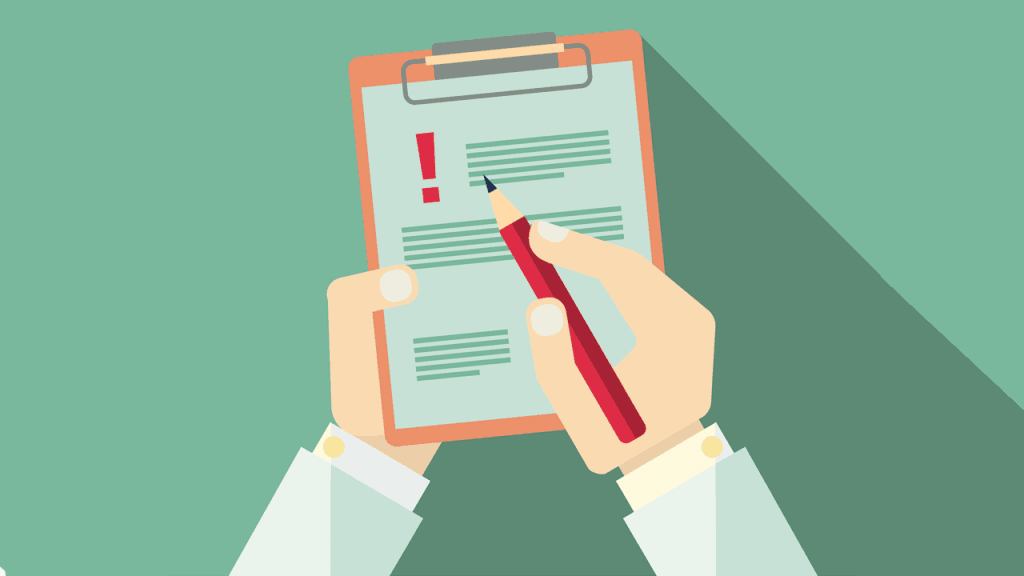I wish I didn’t have to write a chapter on this subject, but I do, because although we’d like to believe that we’ve moved beyond racism, intolerance, and other forms of bigotry in the workplace, the truth is we haven’t.
It still exists. It’s still a problem.
It likely always will be.
I don’t mean this to paint a glum picture of the software development world.
There are more good, honest, non-prejudiced software developers and managers out there than there are bad ones.
For the most part, we live in a time of opportunity—for all people—like never before.
The world, in general, is more accepting of different cultures, races, religions, sexes, and just about anything else you can think of than ever before.
But… there are still problems.
And as much as I’d like to tell you how the world needs to change and what should be done about these situations, I’m a realist.
And the realist in me says that we might not like how things are, and we can do our part to change and affect what we can, but at the end of the day, we have to learn how to adapt and deal with our current environment.
That’s what this chapter is about.
It’s not about what is wrong and how society can fix it.
It’s about what you can do.
It’s about how you can deal with prejudice if and when you encounter it.
It’s about how you can respond and rise above the people who try to hold you down.
It’s about choosing to control what you can control, accepting what you cannot change, and not inadvertently becoming part of the problem, by having grace for all people, even the “bad” ones.
Accept That People Have Unconscious Prejudices And Stereotypes
We talked about this a bit in the chapter on “How to Dress,” so I won’t beat a dead horse here, but it’s important to know and realize that everyone—including you—has some deep-seated prejudices and relies on stereotypes.
Again, the point of this chapter is not to judge or to say what is right or wrong, but to tell you how to effectively deal with this fact.
The best way to deal with other people’s prejudices, especially when they are against you, is to accept them.
By accept them, I don’t necessarily mean tolerate them. There are certainly instances where you need to assert yourself and respond.
By accept them, what I am really trying to say is that you need to realize that no matter who you are, someone is going to have some prejudice against you for some reason that is out of your control.
You need to accept this fact.
You need to expect that this is the case, otherwise you’ll always be in shock, outrage, and disbelief.
But if you come into situations—especially in the workplace—expecting and understanding that there will always be some level of prejudice and that everyone has some, you’ll be much better prepared to handle it.
Again, when I say “accept” I’m not trying to tell you it’s not a problem, I’m just trying to tell you to face and see reality clearly, so you can respond appropriately.
Give Yourself The Best Chance For Avoiding Prejudice
I know what I am about to tell you isn’t a popular opinion.
Some people might label me as an enabler of abuse and intolerance. (Kind of ironic, don’t ya think?)
But, like I said, this chapter is about being effective, about what you can actually do to make your life and career better in an imperfect world filled with imperfect people.
It’s not about changing the world to shape our desired reality.
With that said, often the best way to avoid prejudice is to be aware of it enough to actually change how you present yourself to other people who you think may be prejudiced against you—especially unconsciously.
Let’s pick an easy example.
How about your name?
Depending on different contexts, your name can invoke unconscious—and unfortunately, sometimes conscious—prejudice against you.
In the U.S. at the time of writing this book, if you happen to have the name “John Smith”, “James Robert”, or something similar, you probably don’t have to worry at all about someone in a workplace being prejudiced against you just based on your name.
But if your name is “Fatima Mohammed” or “Tamicka Jones”, you might have more of an issue.
I know this isn’t politically correct, but let’s just be honest here.
On the flip side, I had the chance to visit China recently and I can tell you with a large amount of confidence, that if your name is “John Smith” or “James Robert” there, or in Japan, you are probably going to experience some prejudice as well.
I’m using both of these examples so you can see it’s context-based.
Different people are going to experience different kinds of prejudice in different contexts and environments. It doesn’t matter who you are, I can find a place where people will be prejudiced against you based on your name alone.
So, what can you do about it?
Well—and I’m actually not kidding about this—you can legally change your name or go by a nickname.
I know it can feel like you shouldn’t have to do that or even that it’s wrong to do that, but I’m talking about being practical here.
If you have a name that you know is likely to invoke prejudice against you, which is a better strategy? Try and get other people not to be prejudiced against your name, or to change your name so that you don’t have the problem in the first place?
This is actually a fairly common thing for book authors and actors to do.
I know plenty of software developers who have done it as well.
Heck, I considered it, because my last name is Sonmez.
I’ve always wanted to have a screen name of “Vince De’Leon.”
It’s too late now though, since too many people know my name, but I’m sure that some people are immediately prejudiced against me because of my name.
The point is, it’s just a name. It’s not you.
If you feel like changing your name is going to help you avoid prejudice, do it.
If you don’t want to, don’t, but at least accept that you may experience some prejudice because of it.
Don’t expect the world to work how you want it to.
The same goes for how you dress, the accent you speak with, and the vocabulary you use.
The most pragmatic advice I can give you is to take an honest assessment of yourself in relation to the context of the work environment you’ll be working in, and try to figure out what things about you or how you present yourself are likely to invoke negative stereotypes or prejudice.
Then, figure out which of those things you can alter to reduce that prejudice without sacrificing the core of who you are.
Don’t get me wrong, I’m not saying be ashamed of your name or your heritage or your skin color or hair color or religion or whatever it is.
I’m just asking what can you change or how can you present yourself to reduce prejudice against you.
There are quite a few simple things you can do that do not involve sacrificing your integrity or changing the core of who you are.
Let me give you a few examples.
Many intelligent people in the U.S. who have southern accents, for instance, choose to hire voice coaches to help them get rid of their accent.
Having a southern accent doesn’t mean you aren’t intelligent, but there is a stereotype of a southern accent in the U.S. that is not always positive.
Tattoos can work against you, but can be covered up or removed.
Some racial prejudices can be overcome or reduced simply by dressing a bit more professional, reducing accents, and altering vocabulary.
Even looking good—for example, being a bodybuilder or an attractive woman—can cause you issues, but clothing choice can negate some of those stereotypes.
Now, there are some things that you know might negatively affect you and you don’t want to change them. That’s perfectly fine. I totally understand.
I’m just giving you some suggestions about what you could do.
Ultimately, it’s up to you.
Again, I know this chapter is going to rub some people the wrong way. I get that.
But ask yourself if what I am telling you is a pragmatic way for you to deal with prejudices against you or not.
Am I trying to say prejudice is ok and make an excuse for it, or am I trying to give you some practical advice for avoiding it in the first place?
Don’t Segregate Yourself
One mistake I often see in workplaces where there is some amount of prejudice is self-segregation of people who are experiencing some degree of prejudice.
Don’t do this.
Don’t “find your people,” form a big group, and only hang out with them.
This will only serve to create more prejudice, and will likely make you actually look like you are exhibiting prejudice.
In the spirit of throwing all political correctness out the window, I’ll tell you this story.
Once upon a time I was working a government contract with a bunch of other contractors, of which a good percentage were Indian.
The Indian contractors would self-segregate.
They’d hang around each other and go to lunch together every day.
Then there was me.
I got right in the middle of it.
I’d jump in and invite myself to their lunches.
I’d be right there talking shop with them.
I was an honorary Indian guy—even though I have no Indian ethnicity at all.
Other contractors would frequently have issues with the Indian contractors—not me.
The Indian contractors would frequently have issues with the non-Indian contractors—not me.
I could see things from both sides and I was well-liked by Indians and non-Indians.
Eventually, I started inviting other non-Indian contractors to go to lunch with us as well.
I greatly reduced the amount of prejudice that I would have had to deal with, and I was in position to reduce the prejudice the Indian contractors had to deal with, because I broke up the self-segregation and I included everyone, starting with myself.
As someone in a leadership position on the contract, I could see how the self-segregation was hurting the project.
It’s not always as easy to see it from the inside.
I do this everywhere I go.
You’ll often see me hanging out with the strangest groups of people, because I’m not afraid to get in there and mix it up.
As a result, I don’t receive much prejudice at all.
So, my advice to you is to get in there, mix it up, talk to people, and interact with people who aren’t “your people.”
Most people look for people who share commonalities with them and self-segregate into those groups, whether it be by race, religion, ethnicity, or some other divisor.
As a result, they experience more prejudice.
Don’t do that.
Have Confidence In Yourself
By far the best way to combat prejudice is to not let it influence what you think of yourself.
If you hold yourself and your own abilities in high regard, it will be difficult for someone who tries to disparage you in some way to have any effect.
Yes, I know this is easier said than done. When you feel like people are unfairly discriminating against you, or threatening you unfairly based on some bias or stereotype, it can be difficult to go on your merry way, but the more self-confidence you develop, the easier it will be.
You can’t change other people.
You can’t change how they think.
You can’t directly change how they feel about you or act towards you.
But you can change you.
You can become stronger and more resilient.
If you are willing, you can develop your self-confidence to the point where when people make racist remarks or come at you with prejudice, it doesn’t even matter, because you know what you are capable of and you can overcome the disadvantages they are trying to put on you.
There is great power in taking away the power of would-be oppressors by simply being so confident in your own abilities and who you are that what they say or think doesn’t matter.
One of the people I admire the most in history is a man by the name of Frederick Douglass.
Here’s a quote from him, relevant to our discussion:
“The limits of tyrants are prescribed by the endurance of those whom they oppose.”
Frederick Douglass was a slave who escaped his master, became a free man, and helped other slaves escape.
He was a great man, not just because of what he did, but because of what he thought and what he said.
He didn’t allow his condition or the prejudice and racism around him to define him. He rejected it outright.
Here’s a quote from Frederick Douglass’ Wikipedia entry about his time as a slave:
“In 1833, Thomas Auld took Douglass back from Hugh (“[a]s a means of punishing Hugh,” Douglass later wrote). Thomas Auld sent Douglass to work for Edward Covey, a poor farmer who had a reputation as a “slave-breaker.” He whipped Douglass regularly, and nearly broke him psychologically. The sixteen-year-old Douglass finally rebelled against the beatings, however, and fought back. After Douglass won a physical confrontation, Covey never tried to beat him again.”
Why do I like Frederick Douglass so much?
Simple. At no point did Frederick consider himself a helpless victim.
His response was always to ignore you or to fight you, never to acquiesce.
Ignore As Much Of It As You Can
I’m reading a book right now by Mark Manson with a pretty controversial title, The Subtle Art of Not Giving a Fuck.
In the book, Mark says that one of the biggest problems with society and people in general is that they, as he would put it, give a fuck about too many things.
Far too many things.
I’m not trying to make light of discrimination, prejudice, sexism, racism, bigotry, and all the other ills that plague our society—these are real problems—but on an individual level, do we really have to care so much about these things?
I’m not Hispanic, but plenty of people think I am.
I don’t get a large amount of discrimination or prejudice for it, but I do get some.
You know what my default response is?
Nothing.
I simply ignore it.
As Mark Manson would say, “no fucks given.”
So, you think I’m less intelligent because of some stereotype you have of me.
So, you dislike me and want to treat me poorly.
So what?
I simply go on with my day and treat your ignorance as what it is, ignorance.
People say stupid things.
People say hurtful things.
Sometimes out of malice, but mostly out of ignorance.
Heck, half of this chapter—or more—could offend you.
If you choose to let it.
Or you can simply ignore it and move on with your life.
Prejudice happens. Injustice happens.
It happens every day.
It shouldn’t happen, and when it crosses the line, you certainly have to deal with it, but your default mode should be to ignore it.
Pick the hills you are willing to die on very carefully.
I realize this viewpoint isn’t very politically correct and you might not like it, but guess what?
I don’t care.
I’ve got too many important things to worry about and do with my life than to waste time and emotional energy caring about stuff that doesn’t really matter.
I’d rather be pragmatic than offended.
Report What You Can’t Ignore
With that said, not everything can be ignored.
There are times when you must stand up for yourself and you can’t be tolerant of someone’s ignorance, because, pragmatically speaking, it does affect you in a serious way.
If someone in your workplace is hurling racist insults at you and actively discriminating against you, I’m not suggesting you stand idly by and ignore them.
That’s a bit different than saying culturally insensitive things or making inappropriate jokes or some other things that might be “offensive,” but doesn’t actually harm you.
If you are being treated very unfairly by a boss or someone in a position of power because of your race, sex, religion, sexual preference, etc., and it’s actually affecting your career, the answer is not to get a thick skin, it’s to report them.
You’ve got to be the judge, and say clearly when enough is enough.
You have to have clear boundaries—what you will and will not tolerate.
It’s a personal decision, but I’d encourage you to be as pragmatic as possible and to err on the side of thick-skinned versus hypersensitive, because fighting battles all the time is going to wear you out emotionally, physically, psychologically, and won’t be worth it in the long run.
But, when that line is crossed, and you can’t ignore it, here is what you do.
Start by documenting things.
Write down what was said, what happened, who did it, where it took place, and when.
Keep very detailed notes so that it is apparent that you aren’t making things up and just causing trouble for trouble’s sake and that there is a clear pattern of inexcusable behavior.
Again, don’t crucify someone for a single slip-up—unless it’s a severe violation like some form of physical or sexual assault—but, if you need to report someone, make sure you have evidence.
Once you have the evidence you need, try and handle the issue on your own, if possible.
Confront the person, tell them what boundary they have crossed, why it isn’t acceptable, and tell them to stop.
Don’t threaten, don’t intimidate, don’t lecture or beg.
Simply be clear and firm with the boundary they crossed and that you will not tolerate it.
If they don’t comply, then it is time to go to HR or the higher ups and bring your evidence with you.
If the problem isn’t resolved there, you may want to seek legal council or remove yourself from the environment completely.
Prejudice Sucks
Believe me, I know.
I’ve been the target of it.
I’ve seen other people affected by it.
I hope you can understand that in this chapter, I’m not trying to turn a deaf ear to it, excuse it, or dismiss it in any form.
What I am trying to do is give you pragmatic advice for dealing with it.
In life, I’ve found that being a martyr for a cause is rarely effective.
It’s much more effective to be successful, gain influence and respect, and then use that influence to make an impact on the world.
Holding a picket sign rarely makes a difference.
I’d much rather further my cause by proving naysayers wrong then telling them they are wrong.






